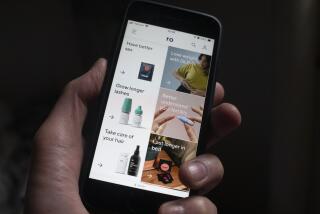Doctor freebies common, study says
- Share via
Nearly 95% of physicians in the U.S. receive free food, beverages, drug samples, sports tickets or other benefits from drug company sales reps eager to influence their prescribing habits, according to a report today in the New England Journal of Medicine.
Family practice physicians, who prescribe a broad range of drugs, were more likely to receive visits and gifts from sales reps than other specialist groups involved in the survey, researchers said.
Doctors in group practices were likelier to pocket fees for consulting or lectures than physicians at hospitals and clinics, which tend to have rules limiting contacts between the medical staff and industry, according to the report.
The study of 1,662 doctors, conducted in 2003 and 2004, is the first to look at physicianindustry relationships since the American Medical Assn. and drug industry each set voluntary limits on the nature and value of gifts doctors may receive in 2002.
The guidelines were prompted by increasing concerns over possible conflicts of interest related to handouts and freebies from drug companies.
Recently, a few academic medical centers, including Stanford University’s, have prohibited all gifts, concerned that even the smallest token could create a sense of obligation on the part of the physician.
Lead author Eric Campbell, assistant professor of medicine at the Institute for Health Policy at Massachusetts General Hospital, said he was surprised to find that the relationships between physicians and industry were so widespread.
Campbell said the study was not designed to assess whether the relationships influenced doctors’ prescribing habits or affected patient care. Nonetheless, he said that it was clear many doctors benefited directly from the industry’s marketing tactics and that it was safe to assume drug companies also benefited.
The industry spends more than $20 billion a year on marketing, he said, the bulk of which goes to physicians in the form of samples, lunches, sponsorship of educational programs and other things, according to previous research.
“If the companies didn’t benefit from the relationships, they wouldn’t be doing it,” he said.
AMA guidelines state gifts should primarily benefit patients and should not be of substantial value. The Pharmaceutical Research and Manufacturers of America, or PhRMA, the drug industry trade organization, recommends gifts that support a medical practice, such as a stethoscope, and do not exceed $100 in value.
Dr. Jerome P. Kassirer, a professor at Tufts University School of Medicine, who was not involved in the research, said the guidelines should be expanded because many of the marketing tactics used by industry fall outside them.
“The whole notion of ‘benefit to the patient’ is too lax,” he said. “Just because a pharmaceutical company gives medical students stethoscopes doesn’t mean they should take them.”
Kassirer said that although some gifts, such as free samples, seem innocuous, they can lead to prescriptions for new, expensive drugs that may be no better than older, cheaper ones.
“Giving a patient free samples means the doctor has to finish off the course of treatment with a prescription,” said Kassirer, a former editor of the journal.
Drug industry representatives say industry sales tactics are part of the process of sharing information about drugs with doctors. Providing a meal makes it easier to schedule “information sessions,” or sales pitches, during lunch, and free samples allow physicians to try out new medications to assess how well they work in patients.
“Drug reps are extremely well-trained and share valuable information with providers about the medication -- when it is most useful, in which patients it works, and what the risk profile is,” said Scott Lassman, PhRMA’s senior assistant general counsel.
In the latest study, researchers sent questionnaires to more than 3,100 doctors in six specialties -- anesthesiology, cardiology, family practice, general surgery, internal medicine and pediatrics -- asking about their financial relationships with drug companies.
Eighty-three percent of all doctors who responded said they received free food and beverages, the most common benefit. Free drug samples were the second most common item, with 78% of doctors receiving them.
About one-quarter of all doctors said they received full or partial reimbursement from industry for attending continuing educational meetings, and 18% of doctors said they were paid consultants to drug companies.
Seven percent of doctors said they received tickets to cultural or sporting events, items that researchers said clearly fell outside ethical guidelines.
Researchers said the level and type of financial arrangements varied by medical specialty. Cardiologists were more likely to receive direct payments from drug companies in the form of consulting fees or lectureships. Researchers surmised cardiologists were targeted by industry because their opinions influence the prescribing patterns of nonspecialists.
Family practitioners reported an average of 16 meetings with industry representatives each month. Researchers said they didn’t know why family practice physicians received the most visits, but speculated that their popularity was related to the number of drugs they prescribed.
Senior author Dr. David Blumenthal, director of the Institute for Health Policy at Massachusetts General Hospital, predicted doctors would face broader government regulation if they did not manage their relationships with industry better.
“The problem isn’t with the companies, it is with the profession,” he said.






